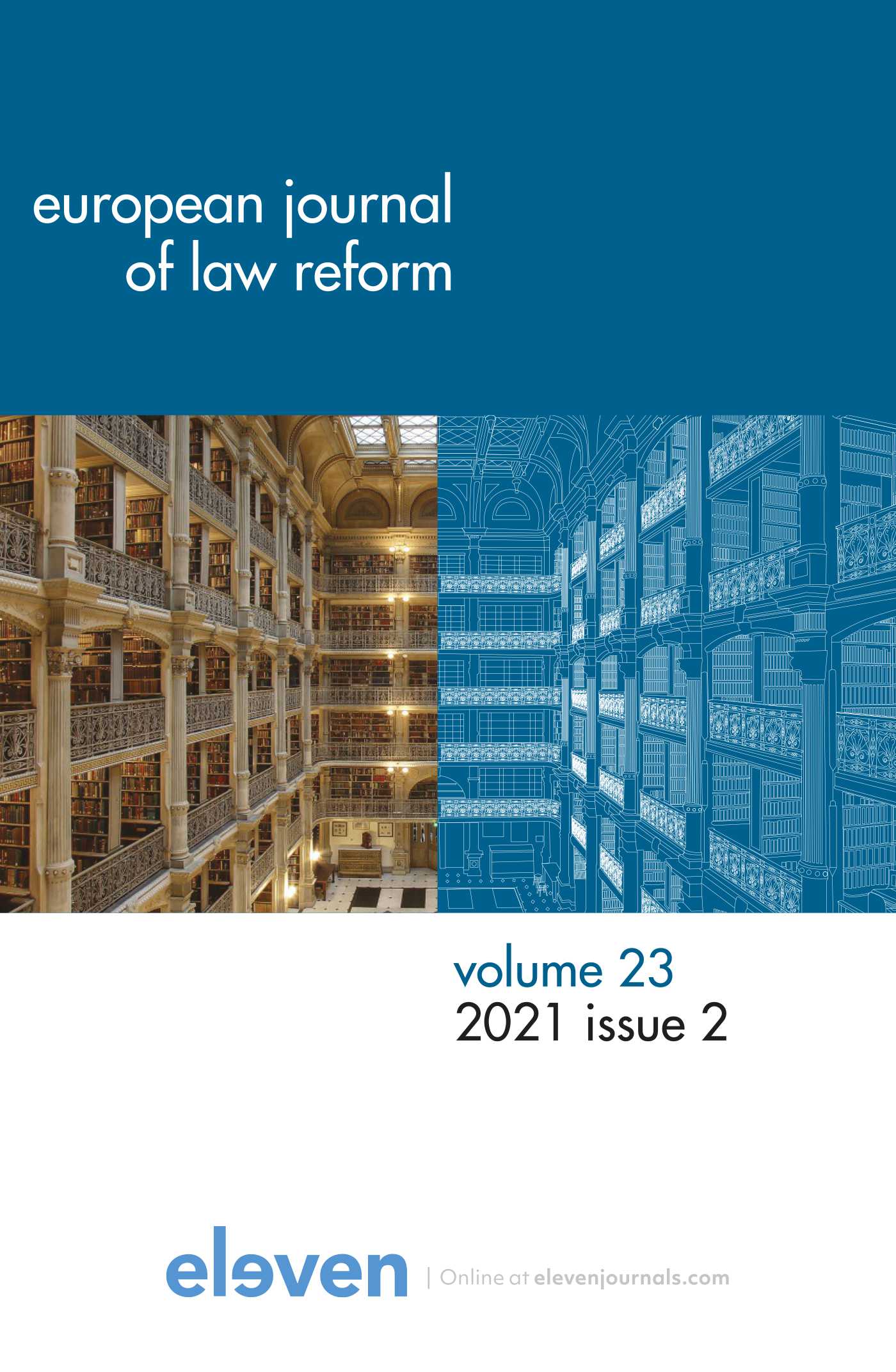|
This article sets out the centrality of government to the initiation of law reform in respect of the (England and Wales) Law Commission and the Scottish Law Commission (and by extension, those law reform agencies based on the British model), and then considers in the light of recent experience how the existing approach works in the unique context of a single jurisdiction – England and Wales – which now has two governments – the UK Government for England, and the devolved Welsh Government. Having identified shortcomings, the article makes suggestions for improved institutional arrangements to meet the particular law reform needs of Wales. |


European Journal of Law Reform
About this journalSubscribe to the email alerts for this journal here to receive notifications when a new issue is at your disposal.
| Editorial |
|
| Authors | Dr Constantin Stefanou |
| Author's information |
| Article |
|
| Keywords | law reform, UK devolution, law reform agencies, relations with governments, reform proposals |
| Authors | Richard Percival |
| AbstractAuthor's information |
| Article |
|
| Keywords | law reform, common law, judges, United Kingdom Supreme Court, legal reasoning |
| Authors | James Lee |
| AbstractAuthor's information |
|
This article examines the practice and limits of judicial law reform. In particular, I consider the question of when initiation of a reform is appropriate for the judiciary as opposed to the legislature, an issue which has been a matter of controversy amongst the Justices of the United Kingdom Supreme Court. This question is assessed in the light of the institutional and constitutional competences of the courts, particularly with respect to the structure of common law reasoning. It is also argued that it is important to have regard to perspectives of the relevant judges, in understanding the individual and collective approaches to the judicial development of the law. |
| Article |
|
| Keywords | customary law, federal system, Australia |
| Authors | Kathryn Cronin |
| AbstractAuthor's information |
|
The Australian law reform arrangements comprise a ‘crowded field’ of law reformers. These include permanent, semi-permanent and ad hoc commissions, committees and inquiries charged with examining and recommending reform of Commonwealth/federal and state laws. These are supplemented by citizen-led deliberative forums on law reform. The author’s experience in her roles as a commissioner and deputy president of the Australian Law Reform Commission (ALRC) and also as counsel assigned to advise the Joint Standing Committee on Migration in the Australian Federal Parliament highlighted facets of Australian law reform – the particular role of a law commission working in a federal system and the co-option of legal expertise to scrutinize law reforms proposed within the parliamentary committee system. |
| Article |
|
| Keywords | High Commission on Codification, France, Law Commission, codification, law reform |
| Authors | Bertrand-Léo Combrade |
| AbstractAuthor's information |
|
The ‘Commission Supérieure de Codification (‘High Commission on Codification’) is a body that was created with the aim of providing support for the process of codifying the texts of positive law. Analysis of both its place in France’s institutional architecture and its working methods highlights certain particularities in the body’s functioning and raises questions as to its degree of proximity to the Law Commissions. |
| Article |
|
| Keywords | post-conflict, rule of law, law reform, legislative reform |
| Authors | Nathalia Berkowitz |
| AbstractAuthor's information |
|
Following conflict, considerable effort is often dedicated to legislative reform. This effort includes not only domestic actors but also international actors frequently acting with the aim of establishing the rule of law. This article seeks, first, to provide some context for legislative reform in post-conflict settings and outline some of the criticisms that have been made. Drawing on the work of legislative experts, the article then identifies some of the simple questions that those involved in legislative reform ask and discusses some of the key challenges in answering them. The article suggests that establishing the rule of law is more than putting laws ‘on the books’ and that the way in which legislation is created may itself contribute to developing the rule of law. It suggests that as the rule-of-law community develops new approaches, it might find it useful to draw on the approach of legislative experts and their concern with how effective legislation is created. |

 Issue 4
Issue 4